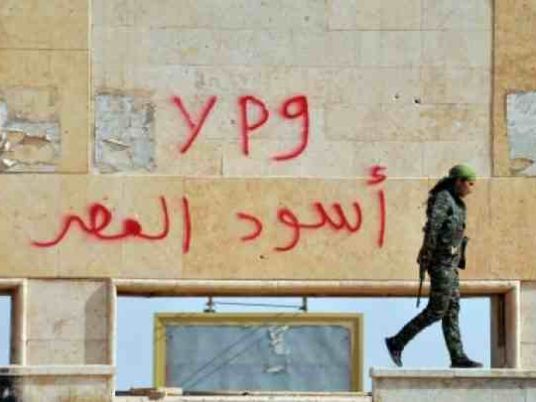
More than 13 million children are being denied education by Middle East conflicts, the UN said Thursday, warning "the hopes of a generation" would be dashed if they can't return to classrooms.
In a report on the effect of conflict on education in six countries and territories across the region, the United Nation's children fund UNICEF said more than 8,500 schools could no longer be used due to violence.
It detailed cases of students and teachers coming under direct fire, classrooms used as makeshift bomb shelters and children having to cross active front lines just to take their exams.
"The destructive impact of conflict is being felt by children right across the region," said Peter Salama, regional director for UNICEF in the Middle East and North Africa.
"It's not just the physical damage being done to schools, but the despair felt by a generation of schoolchildren who see their hopes and futures shattered."
Last year alone, UNICEF documented 214 attacks on schools in Syria, Iraq, Libya, the Palestinian territories, Sudan and Yemen.
In Syria, it said education was paying a "massive price" after four year and a half years of conflict.
One in four schools have been closed since the conflict erupted in March 2011, causing more than two million children to drop out and putting close to half a million in danger of losing their schooling.
UNICEF said one of the worst direct attacks on a school in the region came in Yemen, where 13 educators and four children were killed in an assault on a teachers' office in the western city of Amran.
"The killing, abduction and arbitrary arrest of students, teachers and education personnel have become commonplace" in the region, the report said.
In the embattled Gaza Strip, which saw a 50-day war last year between Hamas militants and Israel kill about 2,200 Palestinians and 73 on the Israeli side, the UN said at least 281 schools had been damaged, and eight "completely destroyed".
UNICEF called for better informal education services in countries affected by school closures and for donor nations to prioritise education funding throughout the Middle East.
"With more than 13 million children already driven from classrooms by conflict, it is no exaggeration to say that the education prospects of a generation of children are in the balance," it said.
